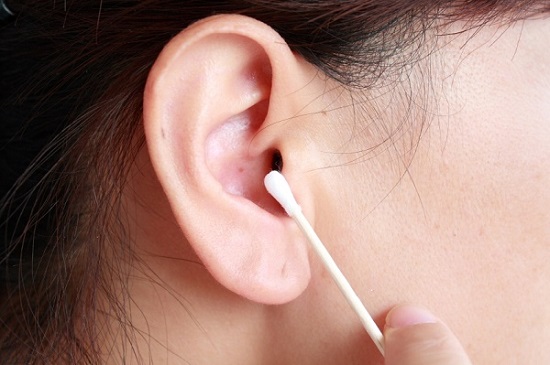
You have most likely never noticed, but on the back of any package of cotton swabs there’s a written warning that is some version of this:
“Caution: Do not enter the ear canal. Penetrating the ear canal could lead to injury.”
If you have a package of cotton swabs, go check it out for yourself.
The thing is, it’s not just doctors, audiologists, and hearing professionals who advise against the use of cotton swabs to clean the ears—even the manufacturers of cotton swabs feel it’s a bad idea!
So why, if the use of cotton swabs is such a preferred technique of ear cleaning, should it be refrained from? Why are the producers so insistent that you don’t use their product in this way?
We’re glad you asked: the following are four good reasons to never use cotton swabs to clean your ears again.
1. Earwax is useful
Earwax has a variety of useful functions besides being gross. It has antibacterial properties to prevent infections, it operates as an insect repellent to keep bugs out of your ears, and it helps to lubricate the ear canal, which helps prevent dried out, itchy skin.
2. Cotton Swabs drive earwax up against the eardrum
Using cotton swabs can actually be dangerous. When you drive any foreign object into the ear canal, you’re moving most of the earwax up against the eardrum. This can rupture the eardrum or can bring about an impaction that will bring about hearing loss.
3. Earwax removes itself
The ear is crafted to remove its own earwax. The normal motions of your jaw—from talking, eating, or yawning—will move the earwax to the external ear. All that’s required from you is normal showering and cleaning the external ear with a washcloth.
4. Too much earwax removal causes dryness
Earwax has lubricating and antibacterial qualities, so if you remove too much, you’ll experience a dry, itchy sensation and will be more vulnerable to infections.
What to do instead
There are several commercialized (and do-it-yourself) solutions you can use to flush out your ears, which is considerably less dangerous than inserting foreign objects into the ear canal. But bear in mind, if you’re having problems with excess earwax or you’re having difficulty hearing, it’s usually best to consult a hearing professional.
Hearing professionals are extensively trained in the structure and function of the ear, and can diagnose any health issues you may have with earwax accumulation or hearing loss. It’s always a wise course of action to rule out more significant problems, and if cleaning is all that’s required, you’ll get the satisfaction of knowing that it’s being done properly.
